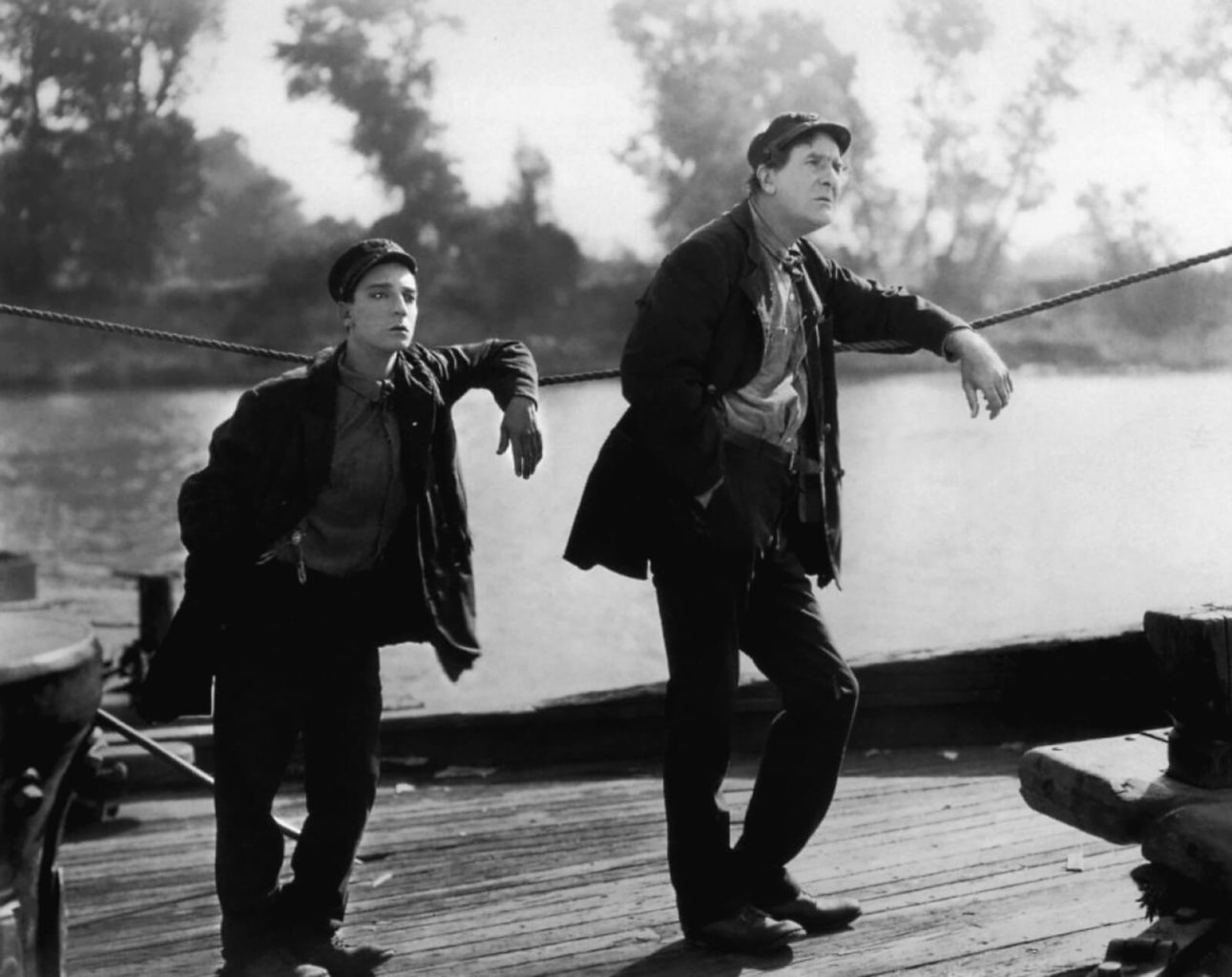Scoring a silent film
It has been an idea long floated around the Student Cinema that we should show a silent film alongside a live score, in a manner reminiscent of the 20s. This term, we decided it was time – as the society’s unofficial musician, I agreed to play the piano, and then spent the best part of two months writing the damned thing in what was truly one of the most enjoyable and most frustrating experiences of my life.
In the 20s, silent film scores were made up pretty much on the spot by the cinema’s musician – the individual and their improvisation meant that you got a different experience each time you went. I chose not to follow this route, instead opting for a more modern score, prepared beforehand and using recurrent themes connected to characters and situations – an approach that marks the work of John Williams, amongst others.
There are four leads in Steamboat Bill Jr. – Bill Jr’s theme is a very fast-paced and jaunty number, and his father’s an adaptation of an old American standard – the sort of thing you hum under your breath without knowing. King, ostensibly the antagonist, has a loud march (normally in a minor key) marked with triplets, and his daughter has a slow romantic piece. I also wrote a slow number that is played during tender moments between Bill and his son, and two strands of heromuzik that crop up at various points, coming together in the finale. These themes appear often in the film, with the tempo and key altered to fit the mood of the scene.
The process of watching a few seconds of film, matching them with a couple of bars of music, and repeating until I have a scene is long and arduous.
Now, I’d never done anything like this before. The only thing even comparable was a musical I wrote back in the secondary school about the Cuban Missile Crisis (a subject for show tunes if there ever was one), but writing songs is a different proposition to writing a score (plus, if I’m honest, I could barely play piano back then and, having looked back at some of the songs, I’ll be the first to admit they were a bit crap). The process of watching a few seconds of film, matching them with a couple of bars of music, and repeating until I have a scene is a long and arduous one, and it ceased to be fun at multiple points.
Some of it came really easy. Writing the ending and the heromuzik was great – it came flowing out, and I had the final ten minutes of the score long before anything else. The themes for the opening and the bombastic battle between Bill and King were also great scenes to score. The trouble, then, came with the middle of the film.
In the end, I resorting to just playing randomly, hitting keys until I heard something I liked.
After Bill has met his son, he takes him to the hairdresser, and to buy a hat and some clothes. I decided to write some background music – the score of stuff you can hear in a shop – without thinking how difficult it would be to write non-descript music. How do you come up with something decent when you’re basing it on something purposely banal? In the end, I was quite happy with the result – a gentle swing number for each shop. It was less pleasurable to write for the sequence when Bill Jr. sneaks out of the boat, and the last scene I scored – I had no ideas. Try as I might, I couldn’t come up with anything. In the end, I resorting to just playing randomly, hitting keys until I heard something I liked.
I’m happy with the end product – I think the score is good and rather fun, and almost guaranteed to stick in people’s minds at the end of the film (assuming, of course, that I don’t fluff it up on the night) – and I’m very glad I’ve done it. Five years ago, I couldn’t play piano in the slightest, so to have been able to sit down and write 70 minutes of score is really incredible. I’ve always enjoyed film music, but now I respect the composers even more. Come along if you can – we’ll be showing it on Thursday 3rd March – and hopefully you’ll enjoy it as much as I did.

Comments